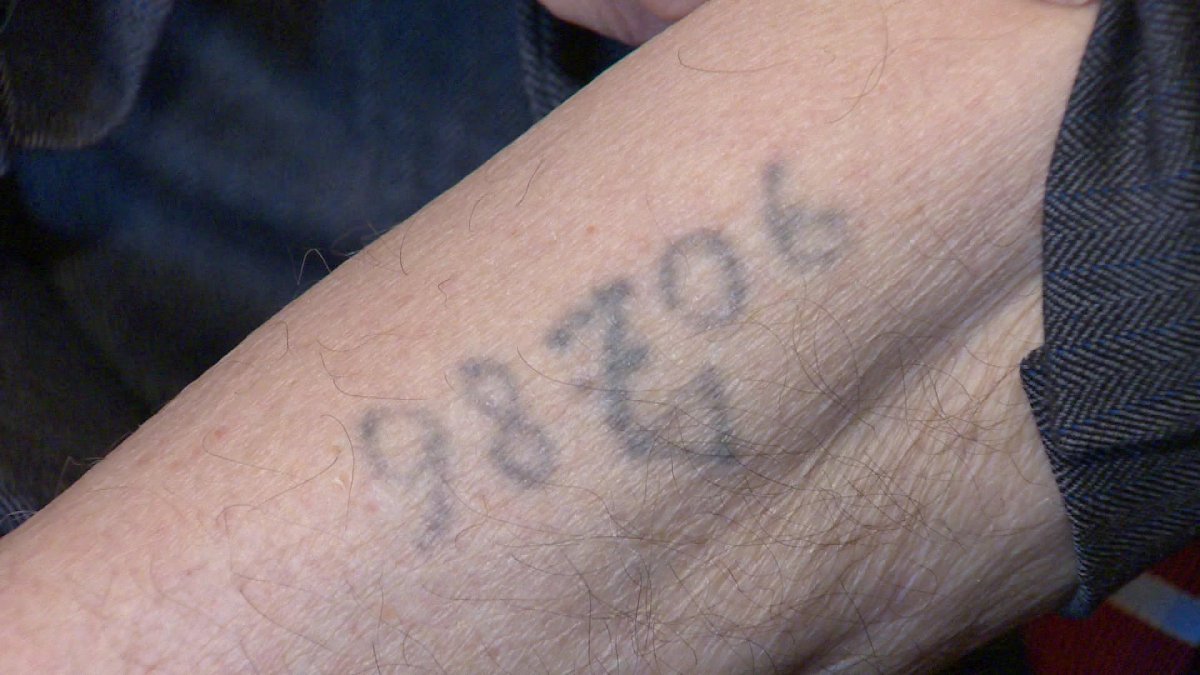BEDFORD, N.S. – 98706.

Those were the numbers that Philip Riteman was known by during his years in Auschwitz, the Nazi concentration camp.
Riteman was just a teen living in Poland near the Russian border when German troops stormed the region.
At first, they took gold and silver from Jewish residents in his town. Then he was forced to wear the Star of David to identify himself as a Jew.
Weeks later, in the middle of the night, the Nazis came to his door.
Riteman said he was forced to walk 40 kilometres in two days and that German soldiers often shot people while they walked.
He eventually ended up in a ghetto, which he said was occupied by 50,000-60,000 Jews. But the stay was short-lived: he and others were tightly packed onto freight trains headed to Auschwitz.
“We had to walk to the train, a freight car only about eight feet wide and 20 feet long. There were 100 people in a freight car, like sardines, they packed us,” he said.
He stood for almost a week in conditions that were atrocious.
“We were standing up in the freight car with no food, with no water, with nothing. No bathroom. You can’t sit down,” he said.
- Life in the forest: How Stanley Park’s longest resident survived a changing landscape
- ‘They knew’: Victims of sexual abuse by Ontario youth leader sue Anglican Church
- Carbon rebate labelling in bank deposits fuelling confusion, minister says
- Buzz kill? Gen Z less interested in coffee than older Canadians, survey shows
The horrible circumstances only got worse when they arrived at the concentration camp.
“They undress you. They give you new clothes. They shave you. They divided you. My parents, my sisters, my brothers — they go to the gas chambers,” he said.
Riteman was spared because he was selected for hard labour.
But he lost his entire family: his five brothers, two sisters, parents, grandparents, aunts, uncles and cousins.
“It’s hard for you to understand. It’s hard for the world to understand what human beings can do,” he said.
Riteman said he often battles survivor’s guilt and sometimes wishes he did not survive the ordeal.
However, he said that he believes he did in order to tell his story on behalf of those who can’t.
Riteman was eventually liberated and made his way to Newfoundland, where he settled into a career as a salesman. He moved to Halifax in 1979.
The Holocaust survivor, now 90, said he kept silent for decades about what happened to him but decided to speak out about 25 years ago. He’s been telling his story to students at local schools ever since.
“I want the young generation to know about it, what did happen. Because it could come again. I never thought it was going to happen to me either,” he said.




Comments